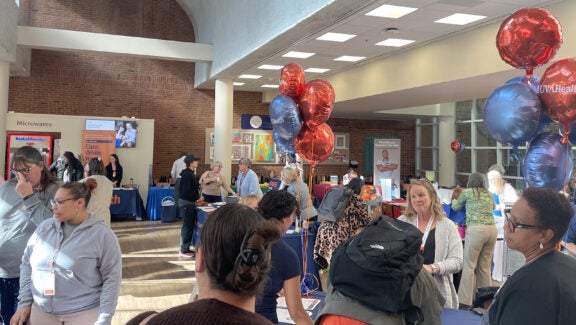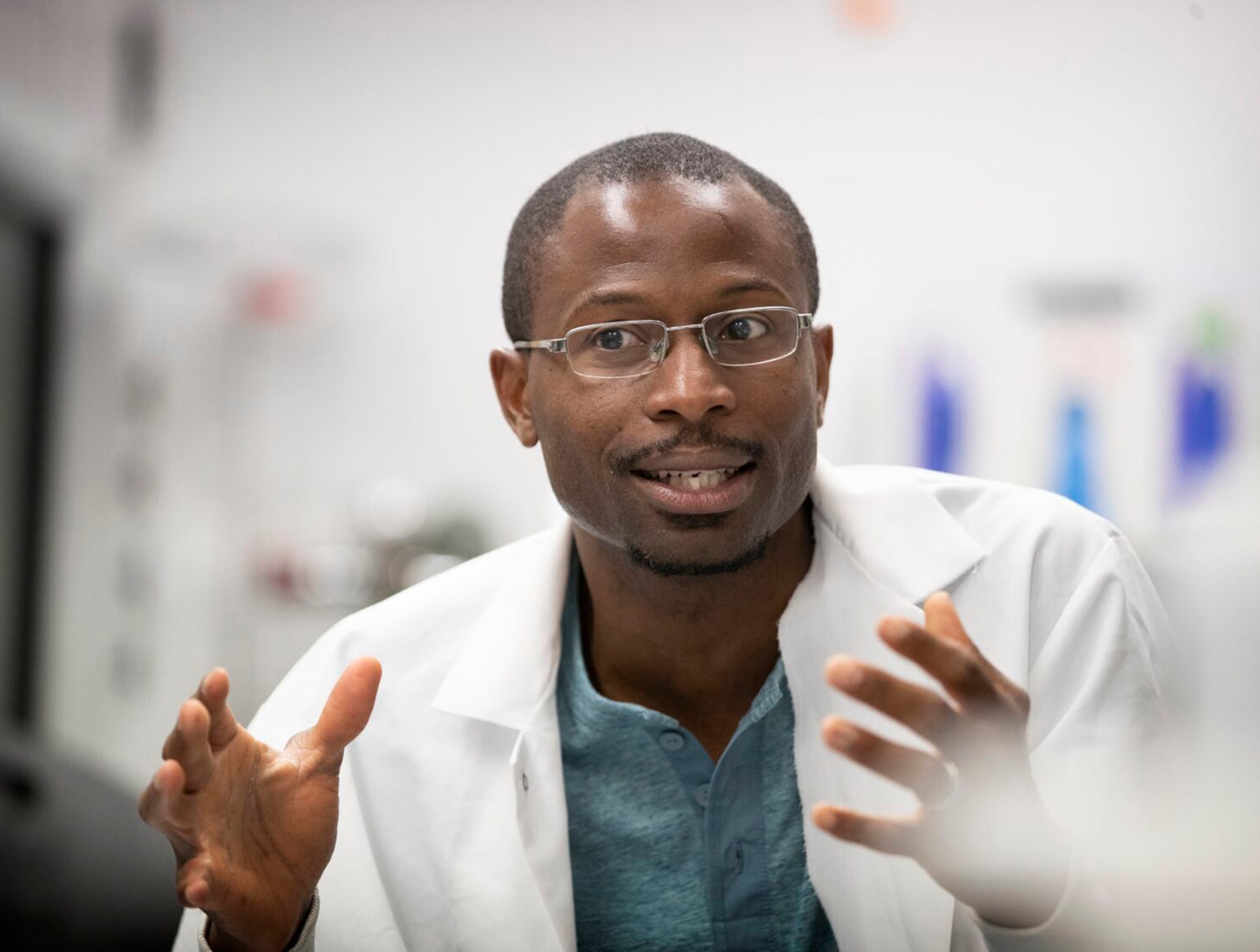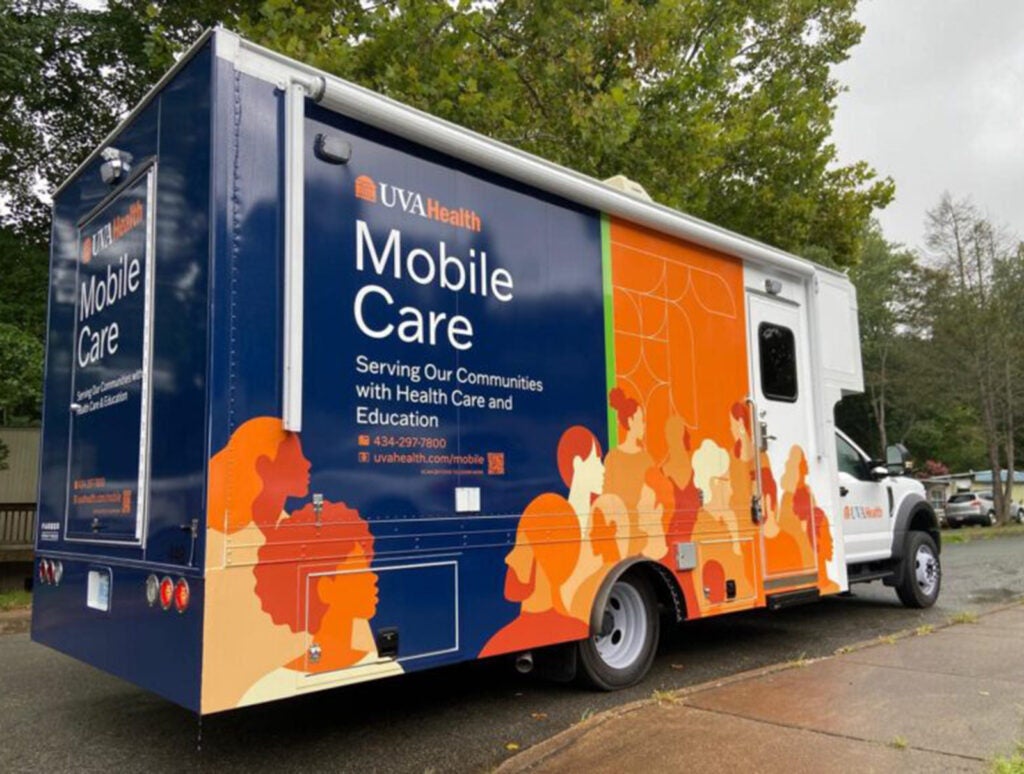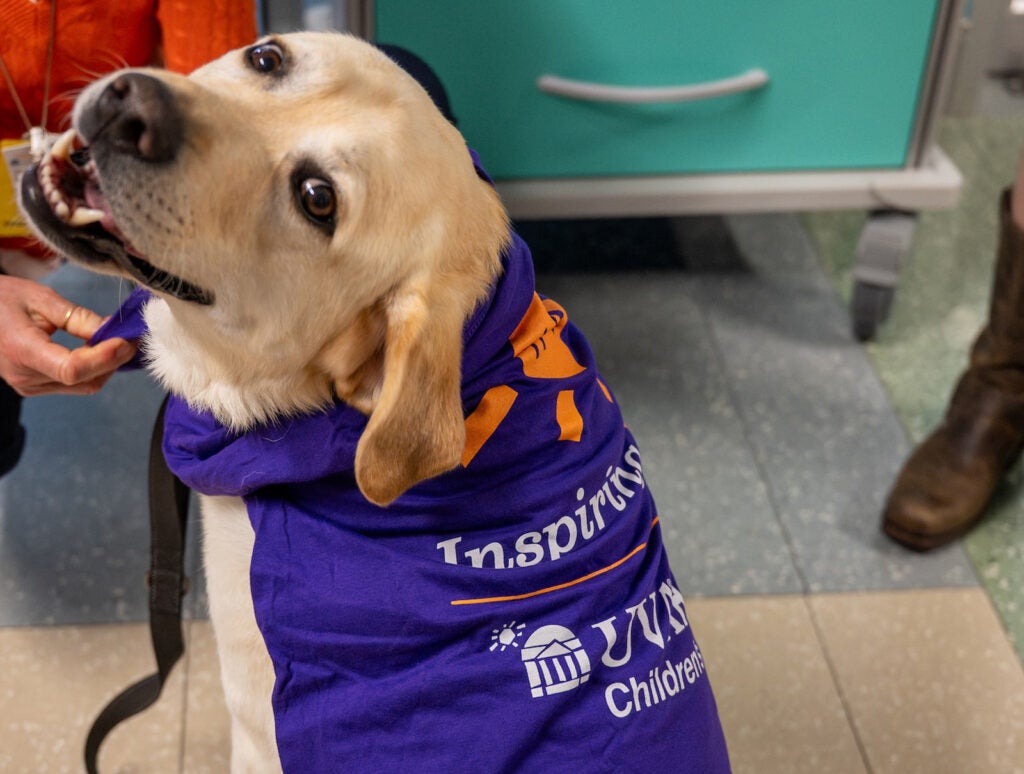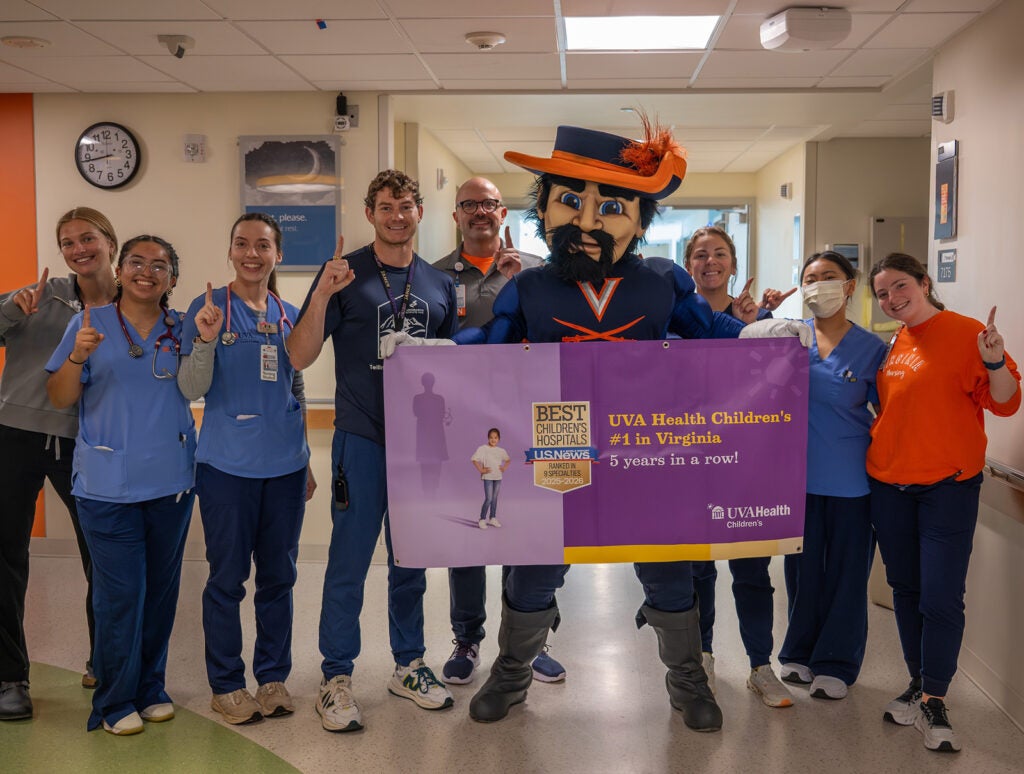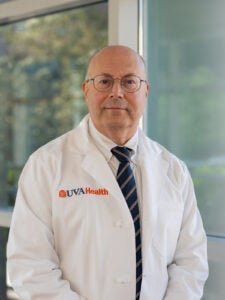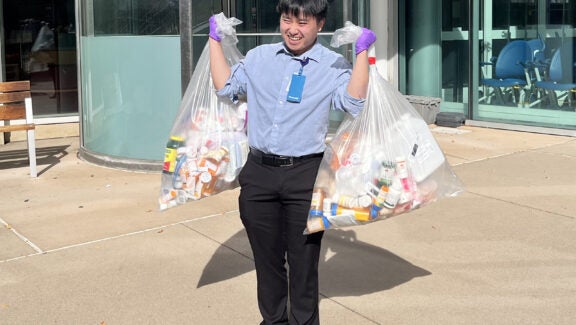
UVA Health Community Update | October 2025
This monthly community newsletter from Dr. Mitchell Rosner, interim Executive Vice President for Health Affairs, highlights how UVA Health serves our patients and the community. To stay up to date on operations, clinical services, and research efforts featured in UVA Health Community Update, subscribe here.
Dear Friends of UVA Health,
The crisp fall air has arrived in Central Virginia, and with it comes a renewed sense of energy and momentum for many of us. In this month’s newsletter, I’m sharing stories that reflect how UVA Health is working to expand access to primary care, advancing discovery, and investing in the health of our communities. On a personal note, I want to thank so many of you for the continued messages of support and for sharing your stories on how care at UVA Health has impacted you. I am so proud of our clinicians, nurses, and team members. We are committed to making sure that we are here for you when you need us.
Included is a Q&A with providers who are building our new program for patients with Ehlers-Danlos syndromes, summary of our expansion of mobile primary care into Greene County, well-deserved news about UVA Health Children’s, and latest progress on the UVA Paul and Diane Manning Institute of Biotechnology building. I’m also pleased to introduce a new feature — Research Highlights — spotlighting how UVA Health researchers are uncovering insights that have the power to transform care for generations to come.
News Feature
Understanding Ehlers-Danlos: How UVA Health Is Leading the Way
September is Thyroid Cancer Awareness Month, and to help our community better understand this disease, we talked with Nicole Fowler, MD, a head and neck surgical oncologist and division director at UVA Health who specializes in treating head and neck cancers, HPV-related disease, thyroid cancer, and salivary gland tumors.
The thyroid is a butterfly-shaped gland at the base of the neck that produces thyroid hormone controlling metabolism. Metabolism is a complex series of cell functions which control weight, energy, heart rate, and body temperature. Thyroid cancer occurs when abnormal cells develop within this gland. In 2025, an estimated 44,020 new cases of thyroid cancer will be diagnosed in the U.S. Thyroid cancer is relatively uncommon, and its overall five-year survival rate is about 98 percent.
Q: What are the typical risk factors for thyroid cancer?
A: One known risk is prior radiation exposure to the neck, especially during childhood. A strong family history also raises concern: if more than two relatives have thyroid cancer, that’s a red flag.
Q: Can people reduce their risk?
A: There is no guaranteed preventive measure, but maintaining a healthy diet with sufficient iodine helps. Iodine is a mineral needed for the body to produce thyroid hormone. Luckily, in the U.S., iodine is routinely added to salt and food, so most people are not iodine-deficient and don’t need to seek out supplementation.
Q: Should people undergo routine screening for thyroid cancer?
A: No, not generally. We do not recommend screening for everyone unless there is a known genetic predisposition or a palpable nodule. When evaluation is needed, ultrasound is the key imaging tool and provides detailed information.
Q: What symptoms or warning signs should people watch for?
A: The most common sign is a nodule or lump in the neck. But even so, only 5–15 percent of thyroid nodules are cancerous.
Q: What are the main treatment options?
A: The standard is surgical removal of part or all of the thyroid. For some smaller nodules, a newer option is radiofrequency ablation — a minimally invasive needle-based technique that kills tumor cells without surgery.
Q: What happens if the thyroid is removed?
A: Patients will need to take thyroid hormone replacement after full or partial removal of their thyroid. This is very manageable, and our UVA Health teams work together to fine-tune dosing and care after surgery.
Other News
Research Highlight: How Ailing Immune Cells May Drive Alzheimer’s
- Who: Ukpong Eyo, PhD, UVA School of Medicine neuroscientist and member of the UVA Brain Institute and Center for Brain Immunology and Glia (BIG)
- Focus: Understanding how the brain’s immune cells, called microglia, protect or harm nerve cells in diseases such as Alzheimer’s and multiple sclerosis.
- Discovery: Dr. Eyo’s team found when microglia lose a key protein, they become stressed and more likely to die. This stress can turn helpful cells into drivers of damaging inflammation.
- Why it matters: The findings could point to new treatments that keep microglia healthy — potentially slowing or preventing brain inflammation in Alzheimer’s and related disorders.
- Learn more: The study was published in Glia and supported by the National Institutes of Health and the Owens Family Foundation. Read UVA Health’s full story here.
UVA Health Expands Mobile Primary Care to Greene County
To make healthcare more accessible for residents in Greene County and nearby communities, UVA Health’s mobile care unit began monthly visits to Stanardsville last week. This expansion supports UVA Health’s goal of bringing primary care directly to communities with limited access. Patients can receive general checkups, chronic disease management, women’s health services, pediatric care, lab testing, and treatment for minor illnesses and injuries. The mobile care unit also serves the Fifeville and Southwood neighborhoods along with Yancey School Community Center in Esmont.
In Stanardsville, the clinic will see patients 2-6 p.m. on the third Tuesday of each month at Greene County Senior Center. Appointments can be scheduled by calling 434.297.7800; walk-ins are also welcome.
UVA Health Children’s Again Named No. 1 in Virginia by U.S. News & World Report
For the fifth consecutive year, U.S. News & World Report ranked UVA Health Children’s the No. 1 children’s hospital in Virginia and recognized nine pediatric specialties among the top 50 nationally. This recognition reflects the exceptional skill of the many UVA Health team members who care for children and families every day. These rankings are based on patient outcomes, safety, and access to specialized programs.
Congratulations and thanks to every team member whose compassion and expertise help make UVA Health Children’s a trusted resource for families.
Manning Institute Reaches Major Construction Milestone
UVA recently celebrated a key phase in the construction of UVA Paul and Diane Manning Institute of Biotechnology with a “Topping Out” ceremony marking placement of the final steel beam on the new facility under construction at Fontaine Research Park. The institute will serve as the hub for biotechnology research, development, and manufacturing at UVA — bringing together scientists, clinicians, and industry partners to advance discoveries in cancer, neuroscience, and immunology. Phase One of the facility opens in 2027.
It was inspiring to see this moment in person, surrounded by donors, researchers, and the construction crew whose extraordinary efforts are helping bring this transformative vision to life!
In Closing
I’m grateful for your engagement and support as we work to strengthen our health system. Thank you for being part of our shared commitment to transform health and inspire hope for all.
Mitch
Mitchell H. Rosner, MD, MACP, FRCP
Chief Executive Officer, UVA Health
Executive Vice President for Health Affairs, University of Virginia
Henry B. Mulholland Professor of Medicine
Latest News

